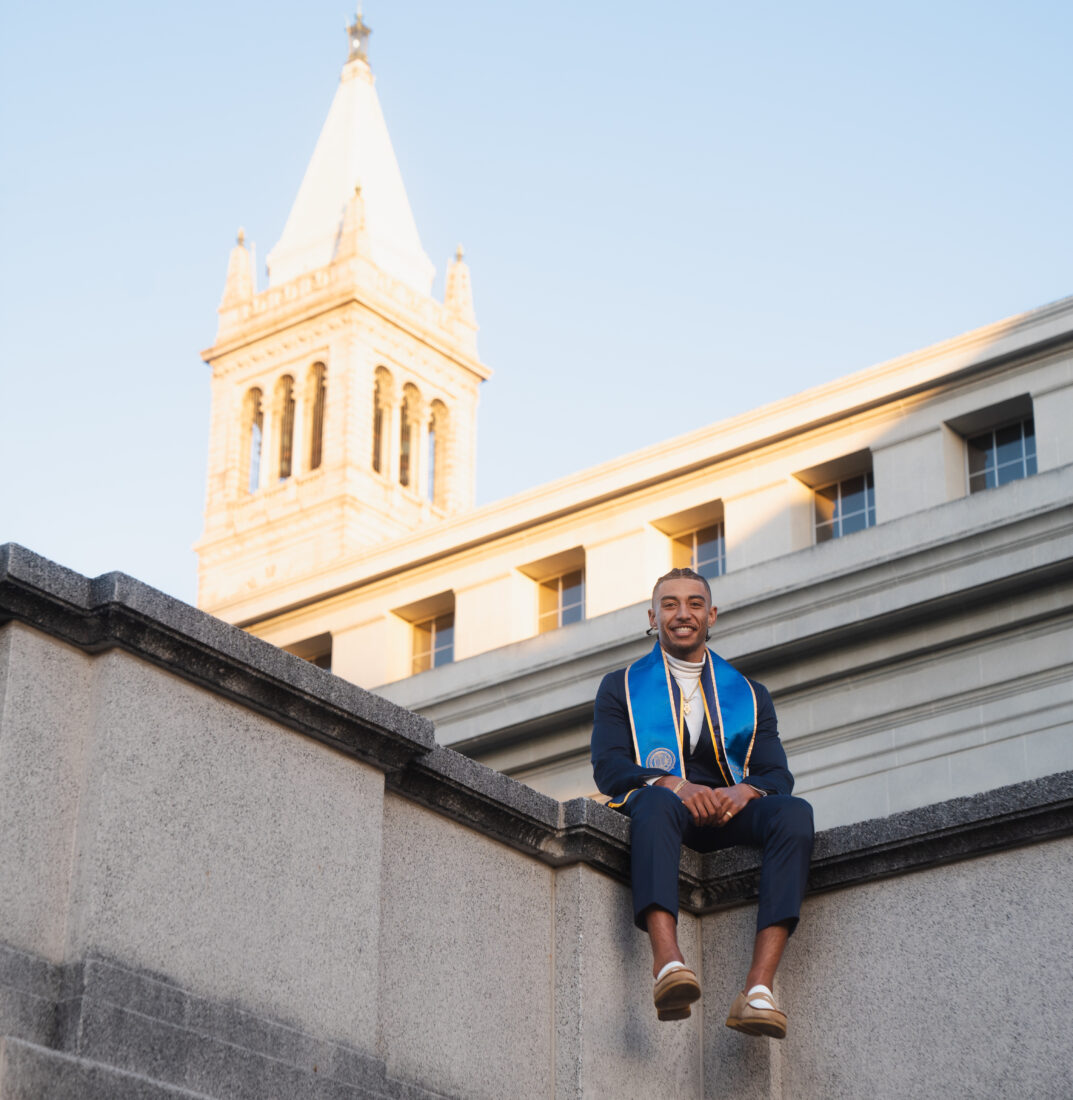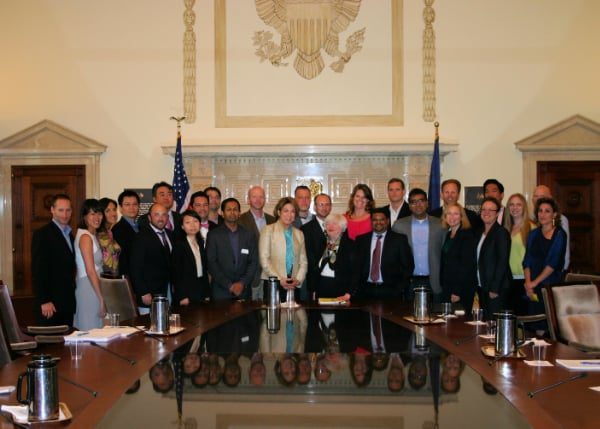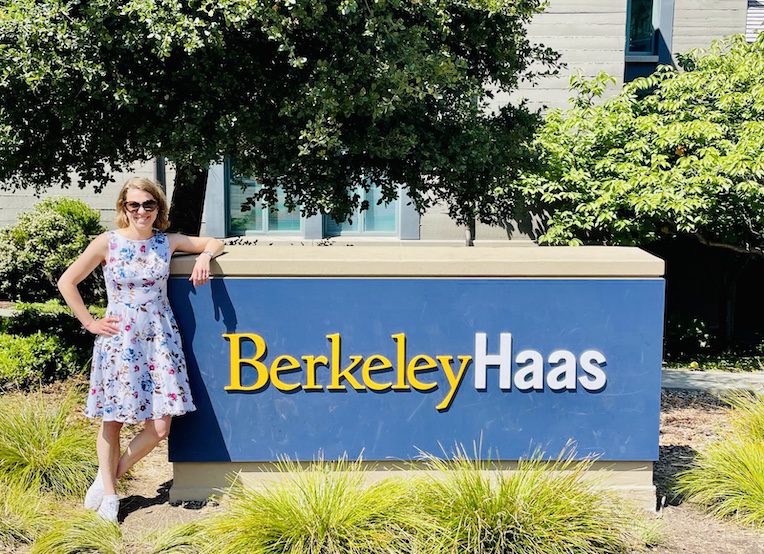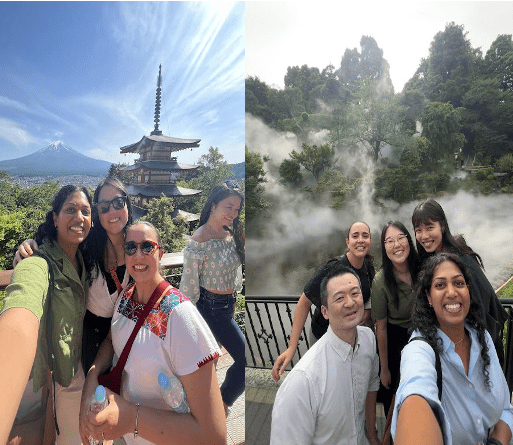EMBA Immersions: Unrivaled Access, Unanticipated Growth
Haas Voices is a first-person series that highlights the lived experiences of members of the Berkeley Haas community. Here, Tsadiku Obolu, who is graduating from the undergraduate Management, Entrepreneurship & Technology (M.E.T.) program this week, shares the wisdom he gained while working on his mental health.

Tsadiku Obolu is graduating from the Management, Entrepreneurship & Technology (M.E.T.) program this week.
While serving as the senior advisor for the Haas Undergraduate Black Business Association, or HUBBA, I typically ended each of our meetings with some ‘senior advice,’ or words of wisdom.
Some of that advice included ‘Know what you don’t want as much as what you do want,’ and ‘You don’t become a leader to be acknowledged by everyone. You are a leader when everyone acknowledges you.’
I was only able to give this advice because I learned it in therapy.
It’s strange to find myself talking about mental health therapy as a Black man. In our culture, men are already looked down upon for being vulnerable and aren’t given the space to talk about their mental health. On top of that, Black men are seen by many as hyper-masculine and are often forced to hide their emotions, so they don’t seem weak.
I started therapy 10 months ago because I had difficulties relaxing and was having issues with sleep and focus. I am a very deep thinker and a hard worker. This deep thinking has helped me to achieve high goals academically, which got me admitted into the highly competitive M.E.T. program four years ago (after my mom convinced me to apply!). But it also had a downside: I couldn’t stop fixating on my thoughts.
Since starting therapy, I’ve become a convert. Not only have I found it incredibly helpful to have someone who helps me work through my problems—the sessions also opened up a new way of thinking for me. My ability to deal with problems in a constructive way has increased tremendously. I started to look at the world differently. I think of therapy like the gym. If you want to train your body, go to the gym. But if you want to train your mind, go to therapy.

“One of the greatest lessons I have learned in therapy, and at Berkeley, is the great power of vulnerability.”
One of the greatest lessons I have learned in therapy, and at Berkeley, is the great power of vulnerability. In being truly vulnerable and speaking my truth, I believe that I brought the people into my life who were meant to be there. I attracted the right circle of friends and pushed out the people who weren’t supposed to be there. It was only when I began being true to myself that I was able to create that community. I found true friends, and I accomplished more than I ever could have imagined.
Some of those accomplishments included being the first-ever Black person in my consulting club—a club that now has seven Black members. I recruited members by engaging with the the Afro Floor (short for the African American Theme Program, a community at Cal that enables students to exist in Black spaces, where they can learn from Black/African theorists, scholars, and organizers), and Black Wednesday, spaces that consulting clubs typically don’t enter because their members don’t come from these communities.
One of my close friends, UC Berkeley student Marcus Aina, and I also founded HUBBA’s first consulting fellowship for Black students on campus, which provides access to previously unavailable skills and resources to help them apply and make it into competitive consulting or professional clubs.
Lastly, therapy helped me redefine how I view success. Success goes far beyond career, money, or any particular job.
I believe that my success is defined by who I am, not where I will work after I graduate (though I am thrilled to be heading to Google). My beliefs are more aligned now with one of my favorite Japanese manga shows Jujutsu Kaisen. ‘Are you the strongest because you’re Satoru Gojo? Or Are you Satoru Gojo because you’re the strongest?
he asked. To me, that means you are not defined by the job or accolade you get; you are defined by the person you are to get it. Being the best version of yourself brings the achievements. You are not your best version because of what you achieved.
I believe everyone should get a therapist. I have helped people at UC Berkeley, friends, and even family connect with therapists. It can be difficult to take that first step, to make the phone call to your doctor and talk about your needs. But as someone who has been in therapy for the last 10 months, I couldn’t be more happy with how much I have grown.
Reflecting on my time at UC Berkeley, true success is measured by the positive impact you have on others and the world as a whole. My time at Berkeley was not successful because of a job I got. It was successful because of the people I was able to impact along the way.
The poet Rumi once said, ‘You are not a drop in the ocean. You are the entire ocean in a drop.’ To that, I say that when you impact a person’s life, you are not impacting a single drop. You are impacting an entire ocean.
Posted in:
Topics:



